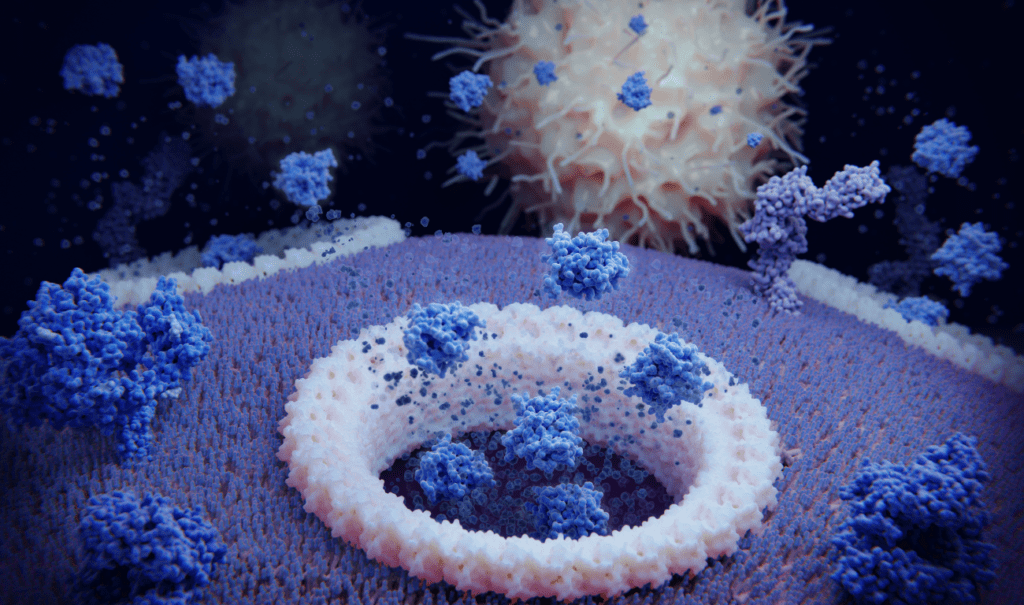Introduction
In the realm of healthcare, oncology stands as a critical field dedicated to the study and treatment of cancer. With the advancement of technology, especially Artificial Intelligence (AI), the landscape of oncology is undergoing a significant transformation. AI has emerged as a powerful tool, offering groundbreaking solutions that enhance early detection, personalized treatment plans, and improved patient outcomes. As the intersection of IT and oncology continues to evolve, the potential for innovative breakthroughs in cancer care becomes increasingly promising. This blog post delves into the transformative impact of AI on oncology, exploring its capabilities, challenges, and the future trends that are reshaping the way we approach cancer treatment.

The Promise of AI in Cancer Detection and Diagnosis
The early detection of cancer plays a pivotal role in improving patient outcomes and survival rates. Traditional methods of cancer diagnosis often rely on invasive procedures and time-consuming analyses. However, AI-driven technologies are revolutionizing this process by offering faster, more accurate, and less invasive diagnostic tools.
Machine learning algorithms can analyze vast amounts of medical data, including imaging scans, pathology reports, and genetic information, to identify subtle patterns and markers indicative of cancerous growths. These algorithms can detect abnormalities with a high degree of accuracy, enabling healthcare professionals to make more informed decisions about patient care.
Moreover, AI-powered diagnostic tools can be integrated into existing healthcare systems, providing real-time insights and facilitating timely interventions. For instance, AI-based imaging technologies can enhance the precision of radiological scans, allowing radiologists to pinpoint the location, size, and characteristics of tumors with greater accuracy.
The integration of AI in cancer detection and diagnosis not only streamlines the diagnostic process but also reduces the risk of misdiagnosis, thereby improving patient safety and treatment outcomes. By harnessing the power of AI, oncologists can expedite the diagnosis process, initiate prompt treatment plans, and ultimately, enhance the quality of cancer care.
AI-Driven Personalized Treatment Plans
Personalized medicine has emerged as a revolutionary approach to cancer treatment, focusing on tailoring therapeutic strategies to individual patient profiles. AI plays a crucial role in advancing personalized oncology by analyzing complex biological data and identifying optimal treatment options tailored to each patient’s unique genetic makeup, tumor characteristics, and overall health status.
Machine learning algorithms can sift through extensive genomic and proteomic data to identify specific biomarkers associated with different types of cancer. By understanding the molecular signatures of tumors, AI can predict how a particular cancer is likely to respond to various treatment modalities, such as chemotherapy, targeted therapy, or immunotherapy.

Furthermore, AI algorithms can simulate the efficacy of different treatment combinations and dosages, providing oncologists with valuable insights into the most effective and least toxic treatment options for individual patients. This predictive modeling enables healthcare providers to develop personalized treatment plans that maximize therapeutic benefits while minimizing adverse effects.
The implementation of AI-driven personalized treatment plans empowers oncologists to make data-driven decisions, optimizing the efficacy of cancer treatments and improving patient outcomes. By leveraging the capabilities of AI, personalized oncology is paving the way for more targeted, efficient, and patient-centered cancer care.
Challenges and Ethical Considerations in AI-Integrated Oncology
While AI holds tremendous potential in revolutionizing oncology, its integration into cancer care is not without challenges and ethical considerations. One of the primary concerns is the interpretability and transparency of AI algorithms. Machine learning models often operate as “black boxes,” making it difficult for healthcare professionals to understand the underlying reasoning behind AI-driven recommendations.
Another significant challenge is the quality and reliability of data used to train AI algorithms. Inaccurate or biased data can lead to flawed predictions and recommendations, potentially compromising patient safety and treatment efficacy. Ensuring the integrity and diversity of training data is crucial to the development of robust and reliable AI-driven oncology solutions.
Ethical considerations also arise concerning patient privacy and data security. The use of AI in healthcare involves the collection, storage, and analysis of sensitive medical information, raising concerns about data privacy, consent, and potential misuse of patient data. Implementing robust data protection measures and adhering to strict ethical guidelines are essential to safeguarding patient confidentiality and trust.
Moreover, there is a growing concern about the potential for AI to exacerbate healthcare disparities. If not properly designed and implemented, AI algorithms could inadvertently perpetuate existing biases in healthcare delivery, leading to unequal access to personalized cancer care and treatment options.
Addressing these challenges and ethical considerations is paramount to realizing the full potential of AI in oncology. Collaborative efforts between healthcare professionals, data scientists, policymakers, and ethicists are essential to developing responsible AI-driven solutions that prioritize patient safety, equity, and ethical integrity.
The Future of AI in Oncology: Potential Breakthroughs and Trends
The future of AI in oncology is brimming with potential breakthroughs and innovative trends that are set to reshape the landscape of cancer care. One of the most promising areas of advancement is the development of AI-driven predictive models that can forecast disease progression and treatment responses with unprecedented accuracy.
Advancements in genomic sequencing and bioinformatics are enabling the integration of AI into precision oncology, allowing for the identification of novel therapeutic targets and the development of targeted therapies tailored to individual patients’ genetic profiles. AI-powered virtual assistants and chatbots are also being developed to enhance patient engagement, provide personalized health recommendations, and support self-management of cancer care.
Furthermore, the advent of AI-powered robotics and automation is revolutionizing surgical procedures, enabling minimally invasive and highly precise interventions for cancer treatment. Robotic surgical systems equipped with AI capabilities can assist surgeons in performing complex procedures with enhanced precision, reducing surgical risks and improving patient outcomes.
Additionally, the integration of AI with other cutting-edge technologies, such as 5G connectivity, Internet of Things (IoT), and wearable devices, is creating new opportunities for real-time monitoring, remote patient management, and personalized healthcare delivery.
As AI continues to evolve and mature, its integration into oncology is expected to accelerate, driving innovation, improving treatment outcomes, and enhancing the quality of cancer care. While the journey towards fully realizing the potential of AI in oncology is fraught with challenges and ethical considerations, the transformative impact of AI on cancer diagnosis, treatment, and patient care is undeniable.
Conclusion
As AI continues to make significant strides in oncology, it is essential to strike a balance between technological advancements and the human touch in cancer care. While AI offers unparalleled capabilities in early detection, personalized treatment planning, and innovative solutions, the importance of compassionate, patient-centered care cannot be overstated.
Healthcare professionals must harness the power of AI to augment their clinical expertise, rather than replace it. Collaborative approaches that combine the analytical prowess of AI with the empathetic care provided by healthcare providers are crucial to delivering holistic, patient-centered cancer care.
Moreover, addressing the challenges and ethical considerations associated with AI integration is vital to ensuring responsible and equitable deployment of AI-driven oncology solutions. By fostering interdisciplinary collaboration, embracing ethical principles, and prioritizing patient safety and well-being, we can harness the transformative potential of AI to revolutionize cancer care while preserving the human touch that is at the heart of compassionate healthcare.
Further Reading
- Health Information Technology in Oncology Practice: A Literature Review
- Artificial intelligence in oncology: current applications and future perspectives
- Advancements in Oncology with Artificial Intelligence—A Review Article
